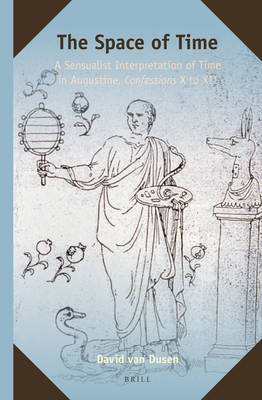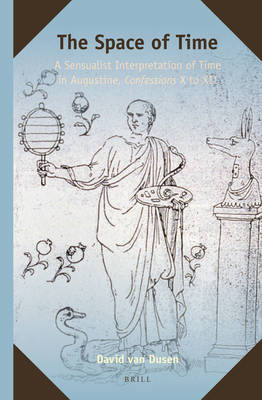
- Afhalen na 1 uur in een winkel met voorraad
- Gratis thuislevering in België vanaf € 30
- Ruim aanbod met 7 miljoen producten
- Afhalen na 1 uur in een winkel met voorraad
- Gratis thuislevering in België vanaf € 30
- Ruim aanbod met 7 miljoen producten
Zoeken
The Space of Time
A Sensualist Interpretation of Time in Augustine, Confessions X to XII
David Van Dusen
€ 286,95
+ 573 punten
Omschrijving
From Robert Grosseteste to Jean-François Lyotard, Augustine's suggestion that time is a "dilation of the soul" (distentio animi) has been taken up as a seminal and controversial time-concept, yet in The Space of Time, David van Dusen argues that this 'dilation' has been fundamentally misinterpreted.
Time in Confessions XI is a dilation of the senses--in beasts, as in humans. And Augustine's time-concept in Confessions XI is not Platonic--but in schematic terms, Epicurean.
Identifying new influences on the Confessions--from Aristoxenus to Lucretius--while keeping Augustine's phenomenological interpreters in view, The Space of Time is a path-breaking work on Confessions X to XII and a ranging contribution to the history of the concept of time.
Time in Confessions XI is a dilation of the senses--in beasts, as in humans. And Augustine's time-concept in Confessions XI is not Platonic--but in schematic terms, Epicurean.
Identifying new influences on the Confessions--from Aristoxenus to Lucretius--while keeping Augustine's phenomenological interpreters in view, The Space of Time is a path-breaking work on Confessions X to XII and a ranging contribution to the history of the concept of time.
Specificaties
Betrokkenen
- Auteur(s):
- Uitgeverij:
Inhoud
- Aantal bladzijden:
- 374
- Taal:
- Engels
- Reeks:
- Reeksnummer:
- nr. 6
Eigenschappen
- Productcode (EAN):
- 9789004266865
- Verschijningsdatum:
- 9/05/2014
- Uitvoering:
- Hardcover
- Formaat:
- Genaaid
- Afmetingen:
- 162 mm x 243 mm
- Gewicht:
- 712 g

Alleen bij Standaard Boekhandel
+ 573 punten op je klantenkaart van Standaard Boekhandel
Beoordelingen
We publiceren alleen reviews die voldoen aan de voorwaarden voor reviews. Bekijk onze voorwaarden voor reviews.








